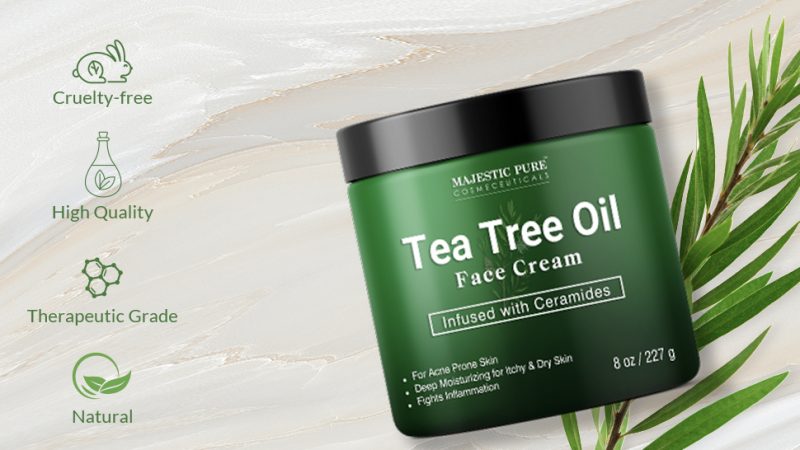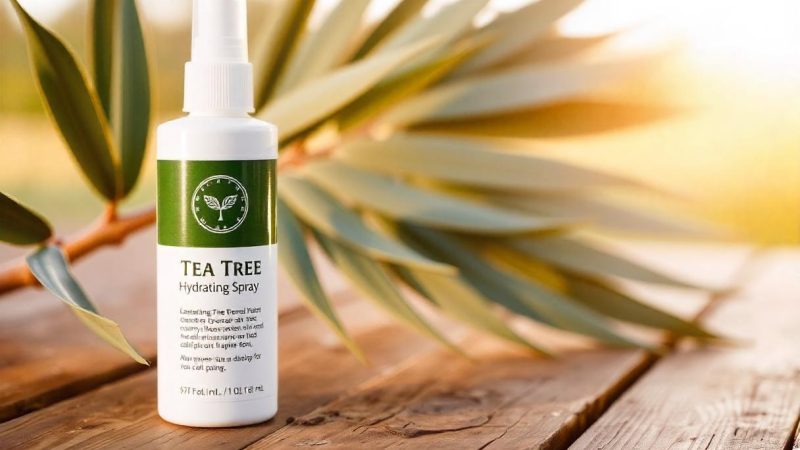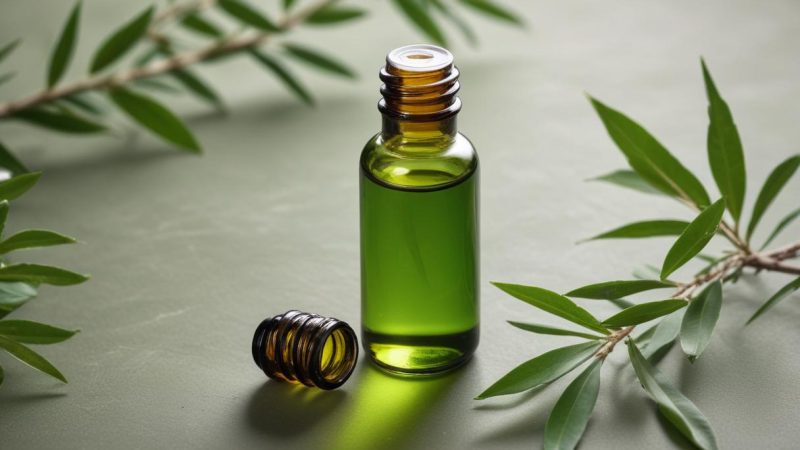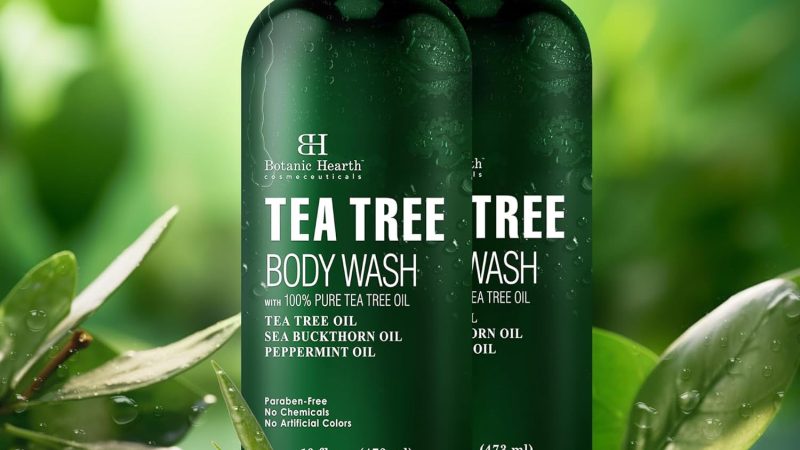Tea Tree Oil for Warts: A Safe and Natural Wart Removal Solution
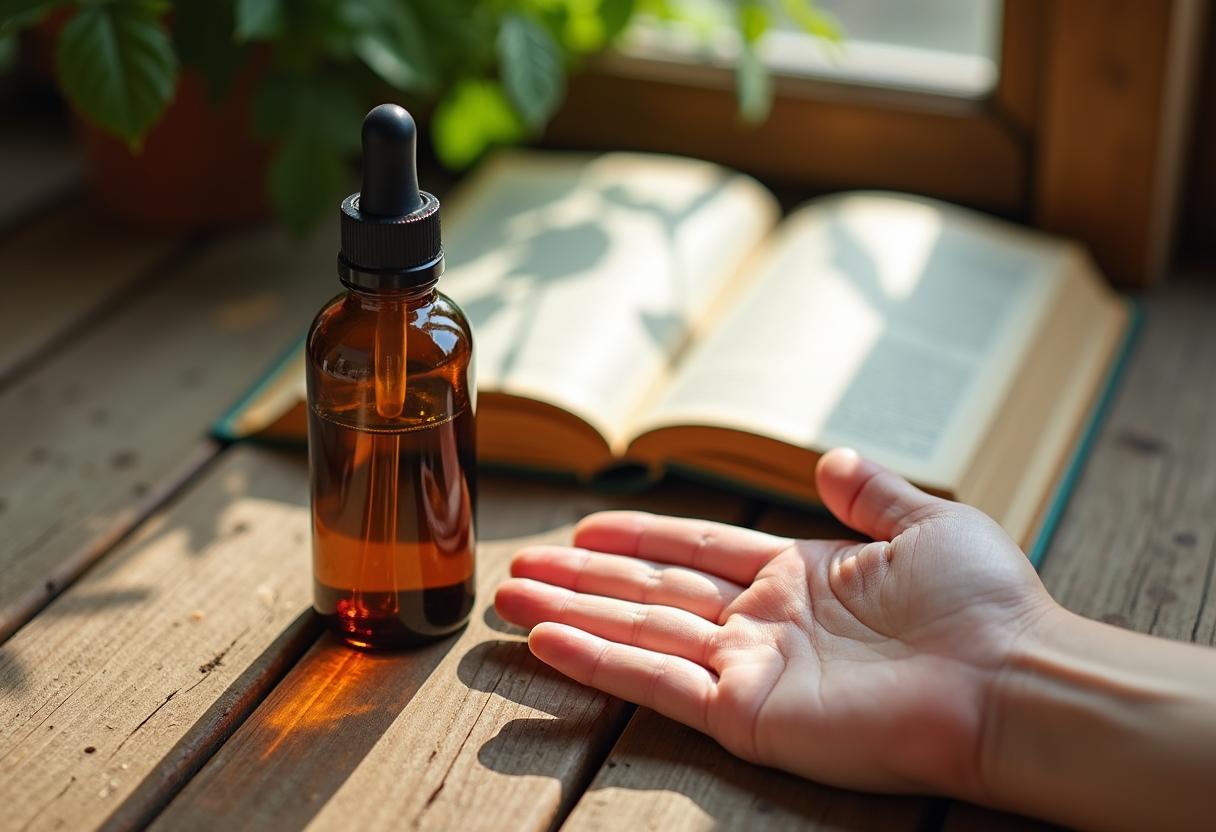
Warts, caused by the human papillomavirus (HPV), are common skin growths that can be unsightly and uncomfortable. While there are many over-the-counter treatments for warts, tea tree oil has gained popularity as a natural, safe, and effective remedy for wart removal. This essential oil, derived from the Melaleuca alternifolia plant, boasts powerful immune-boosting, antiviral, and cleansing properties that make it an ideal alternative to harsher chemical treatments. Here’s how tea tree oil works in helping to treat warts and why you should consider using it.
1. Immune Boosting Properties
Tea tree oil is known for its ability to support the immune system in fighting infections, including viral infections like those caused by HPV. Warts develop when the immune system struggles to keep the virus in check, leading to the growth of rough, raised lesions on the skin. By using tea tree oil, you can help your body’s immune response combat the virus more effectively.
Research has shown that tea tree oil can modulate immune responses, promoting faster healing by stimulating the body’s natural defense mechanisms. Its anti-inflammatory properties also help to reduce the irritation and redness associated with warts, making the area more manageable as the oil works to eliminate the growth.
How to Use for Immune Support:
Apply tea tree oil directly to the wart, but make sure it is diluted with a carrier oil, like coconut oil, to avoid skin irritation. This combination not only boosts your immune system’s ability to fight the virus but also nourishes the surrounding skin to prevent dryness and peeling.
2. Antiviral Action
The primary reason tea tree oil is effective for wart removal is its potent antiviral properties. The essential oil contains compounds like terpinen-4-ol, which has been shown to have strong antiviral activity against various pathogens, including the HPV virus responsible for warts. Applying tea tree oil to warts can help to break down the wart tissue, weakening its hold on the skin and enabling your body to fight off the virus more effectively.
Studies suggest that tea tree oil disrupts the cell membranes of viruses, inhibiting their ability to replicate. Over time, this can cause the wart to shrink and eventually disappear as the virus is neutralized. In addition to its antiviral effects, tea tree oil also reduces the risk of secondary bacterial infections that could arise from broken skin around the wart.
How to Use for Antiviral Effects:
Dab a cotton swab in a mixture of tea tree oil and a carrier oil (like olive or jojoba oil) and apply it directly to the wart once or twice daily. You can also cover the wart with a bandage after applying the oil to keep the area clean and ensure that the oil remains on the affected area for an extended period. Consistency is key—use daily for several weeks for best results.
3. Cleansing and Healing Properties
Tea tree oil is a natural cleanser, making it an excellent choice for keeping the skin around the wart clean and free from dirt, bacteria, and other impurities that could slow down the healing process. Its antifungal and antibacterial properties ensure that the wart site remains sanitary, preventing infections that could otherwise worsen the condition or prolong the healing process.
Using tea tree oil regularly also promotes the shedding of dead skin cells, helping the wart to break down more quickly. As the oil penetrates the skin, it cleanses the affected area while encouraging the healthy regeneration of skin tissue. This dual action helps to not only treat the wart but also ensure that the skin heals smoothly once the wart has been removed.
How to Use for Cleansing:
Mix a few drops of tea tree oil with warm water or a gentle cleanser and use it to clean the wart area daily. This keeps the area free from bacteria and helps in faster recovery. After cleansing, reapply the tea tree oil directly to the wart to continue treatment.
Additional Tips for Using Tea Tree Oil for Warts
- Dilution is Key: Since tea tree oil is highly concentrated, always dilute it with a carrier oil like coconut, almond, or jojoba oil before applying it to your skin. This prevents irritation, especially if you have sensitive skin.
- Consistency is Crucial: Wart removal with tea tree oil is a gradual process, and it may take several weeks of consistent application to see results. Apply the oil daily, and if necessary, cover the area with a bandage after application to keep the oil concentrated on the wart.
- Monitor Skin Reactions: While tea tree oil is generally safe, some individuals may experience mild irritation or an allergic reaction. If redness, swelling, or itching occurs, discontinue use and consult a healthcare professional.
- Use in Combination with Other Remedies: Tea tree oil can be paired with other natural remedies for wart removal, such as apple cider vinegar or garlic, to enhance its effectiveness. However, it’s important not to overwhelm the skin, so use caution when combining treatments.
Final Thoughts
Tea tree oil offers a safe, natural, and effective way to treat warts without the harsh side effects that often accompany chemical treatments. Its immune-boosting, antiviral, and cleansing properties make it an ideal choice for those looking for a gentler yet potent solution to wart removal. Consistent use of tea tree oil can help shrink warts, prevent new ones from forming, and promote healthy skin regeneration.
As with any treatment, it’s essential to give tea tree oil time to work and be patient with the process. If you have persistent or painful warts, consult with a dermatologist or healthcare professional for guidance.
Sources:
- Hammer, K. A., Carson, C. F., & Riley, T. V. (2006). Antimicrobial Activity of Tea Tree Oil. Clinical Microbiology Reviews.
- Mayo Clinic. (2022). Tea Tree Oil: Overview and Benefits.
- Satchell, A. C., Saurajen, A., Bell, C., & Barnetson, R. S. C. (2002). Treatment of Warts with Tea Tree Oil. Journal of the American Academy of Dermatology.
- WebMD. (2022). Essential Oils for Skin Care: Tea Tree Oil Benefits.


